
Peng Zhang's solo exhibition “Nostalgia” is now on display at Nan Ke Gallery. “I come from the village” is a phrase that Peng Zhang repeatedly mentions when he expresses his artistic ideas, demonstrating the deep-rooted influences embedded in him. The exhibition takes the viewer back to the rural life of the artist's childhood, and through large-scale installations and drawings on paper, shouts out his deep nostalgia for the rural life of the past. Through his creations, Peng Zhang explores the close relationship between man and the land, and in doing so, positions himself as he drifts from the grassy countryside to the concrete city.
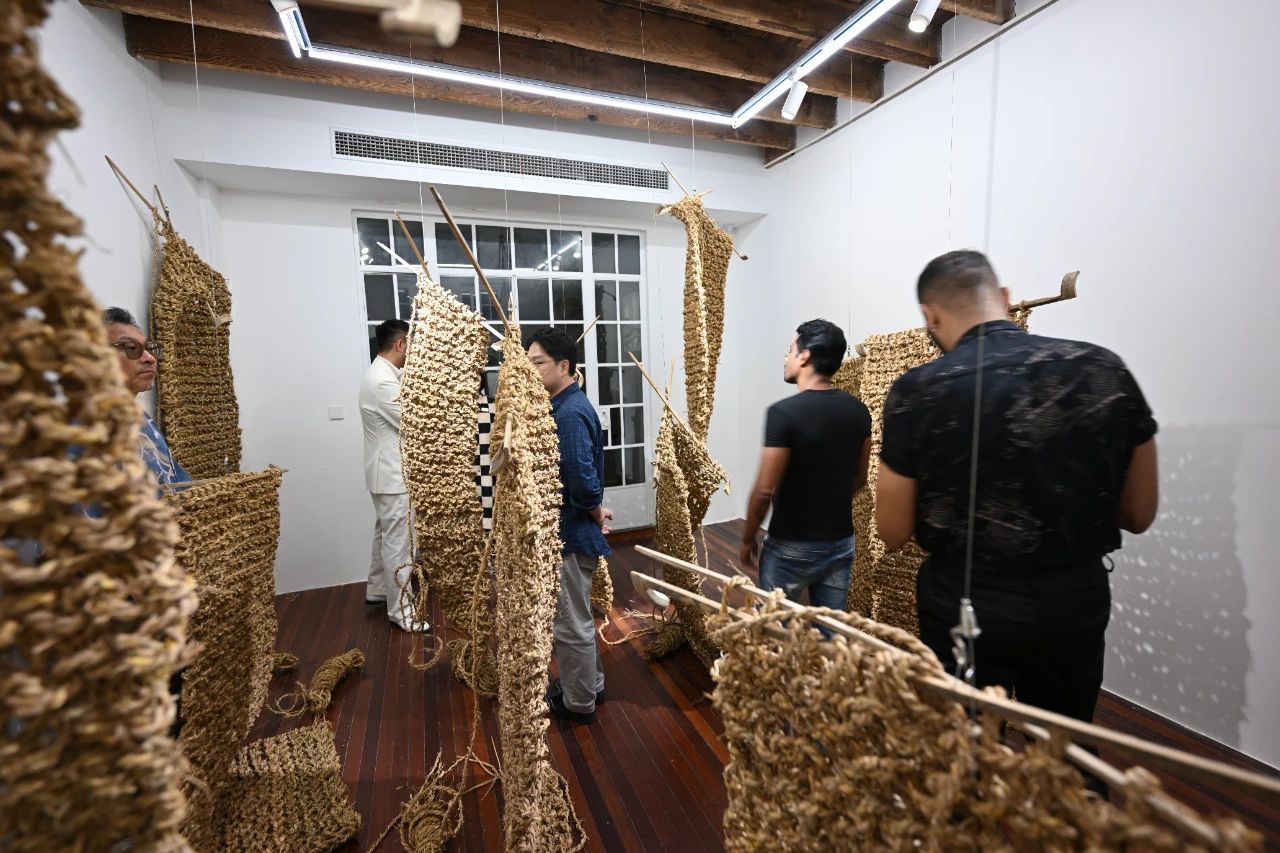
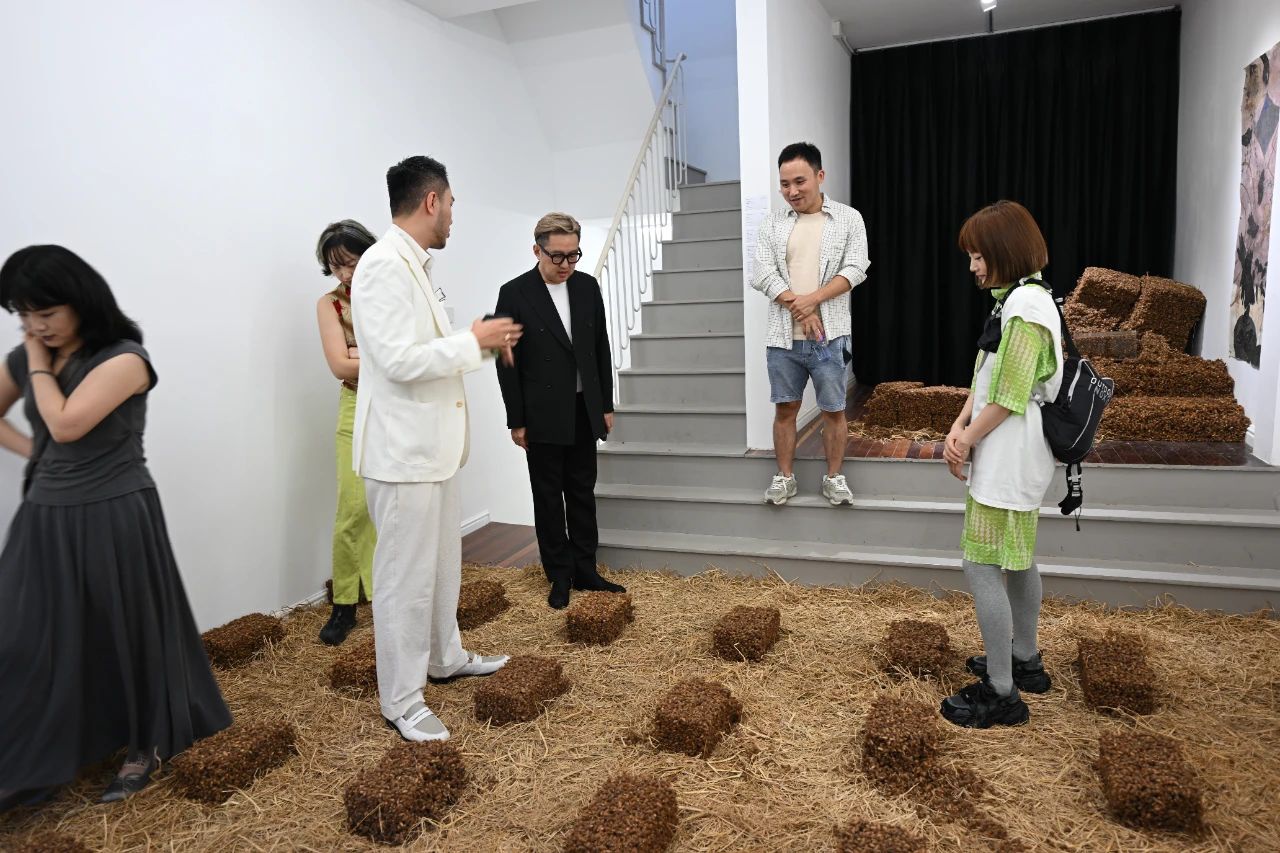
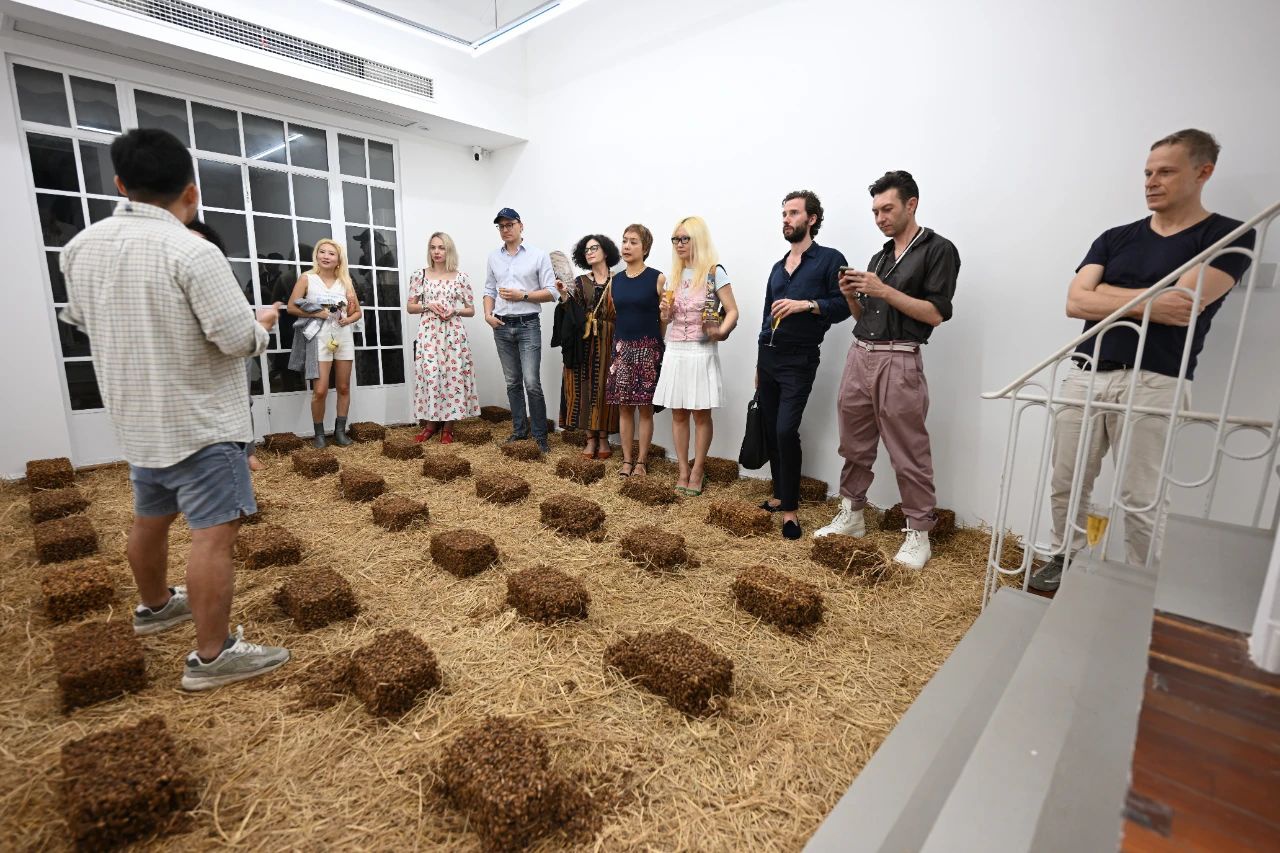
Opening view of Nostalgia, September 29, 2024 - November 10, 2024, Nan Ke Gallery, Shanghai © Courtesy Nan Ke Gallery Photo by Tiger Chen
/"Xanthiums and earth bricks"
From the top of the exhibition, the first work is a large-scale installation“Villagers in Memory”. Peng Zhang transforms xanthiums, an element from his childhood fields, into compacted “earth bricks” to evoke imagery and representations of rural neighborly relations. “When I was a child, I used to play with xanthiums, which would stick to our sweaters or hair and become props for us to play with.” This intimate interaction and collusion is as close and strong as the intertwined sentiments between the villagers.
The tamped-down xanthiums are regularly “dried” on layers of straw, just like real earth bricks. “This traditional way of making bricks also reflects my nostalgia for the rural life of my childhood, and they symbolize the simple and warm daily life.” The barbs of the xanthiums are naturally intertwined and stand in the city's architecture, constantly suggesting an attachment to the connection with nature.
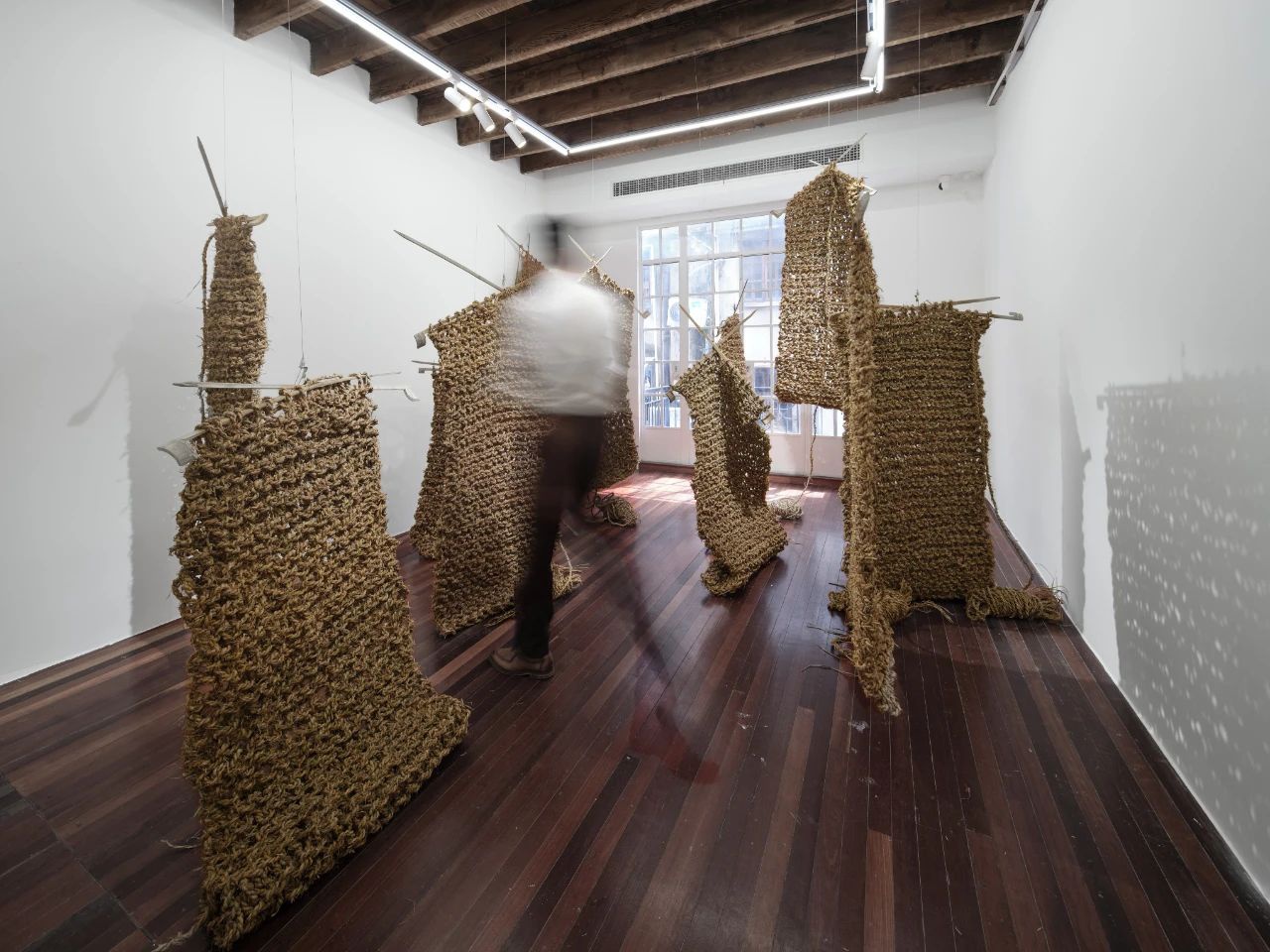
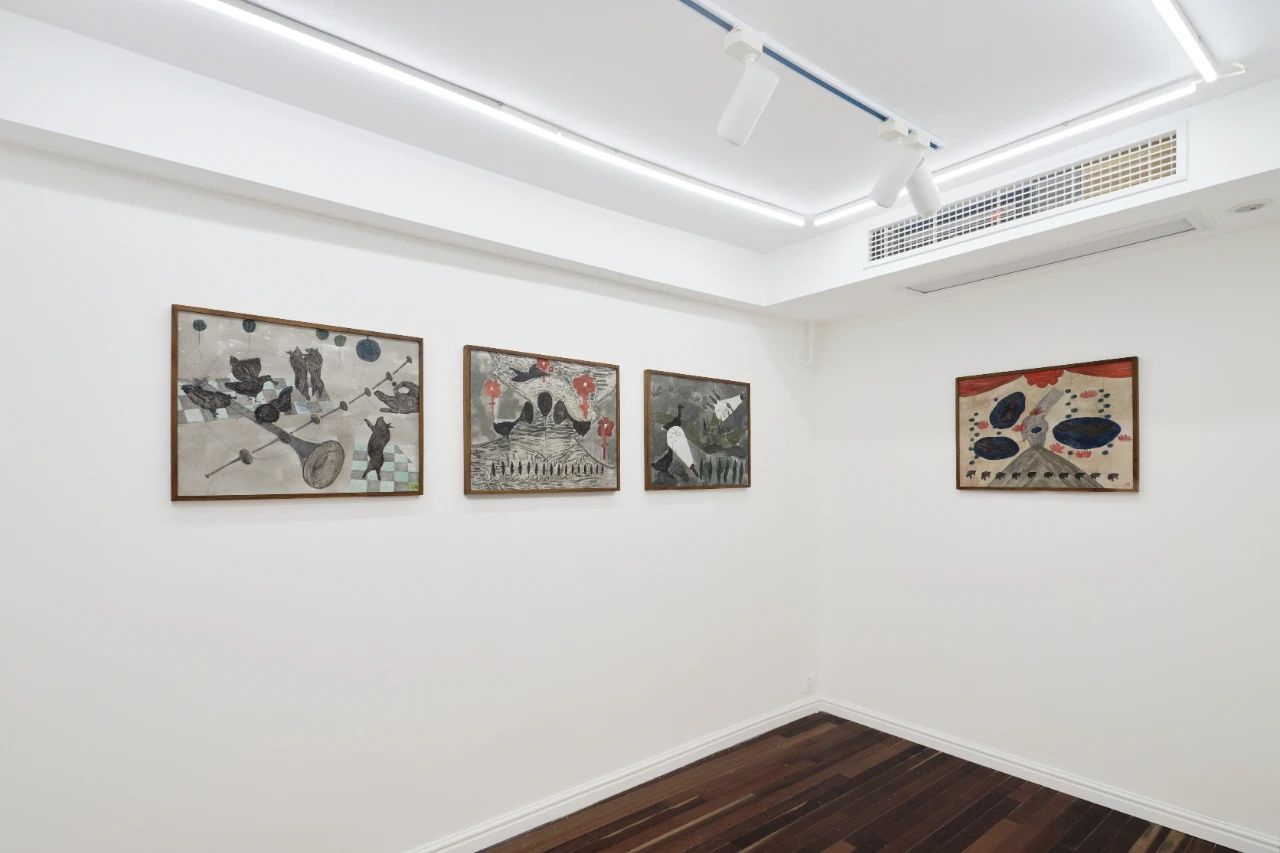
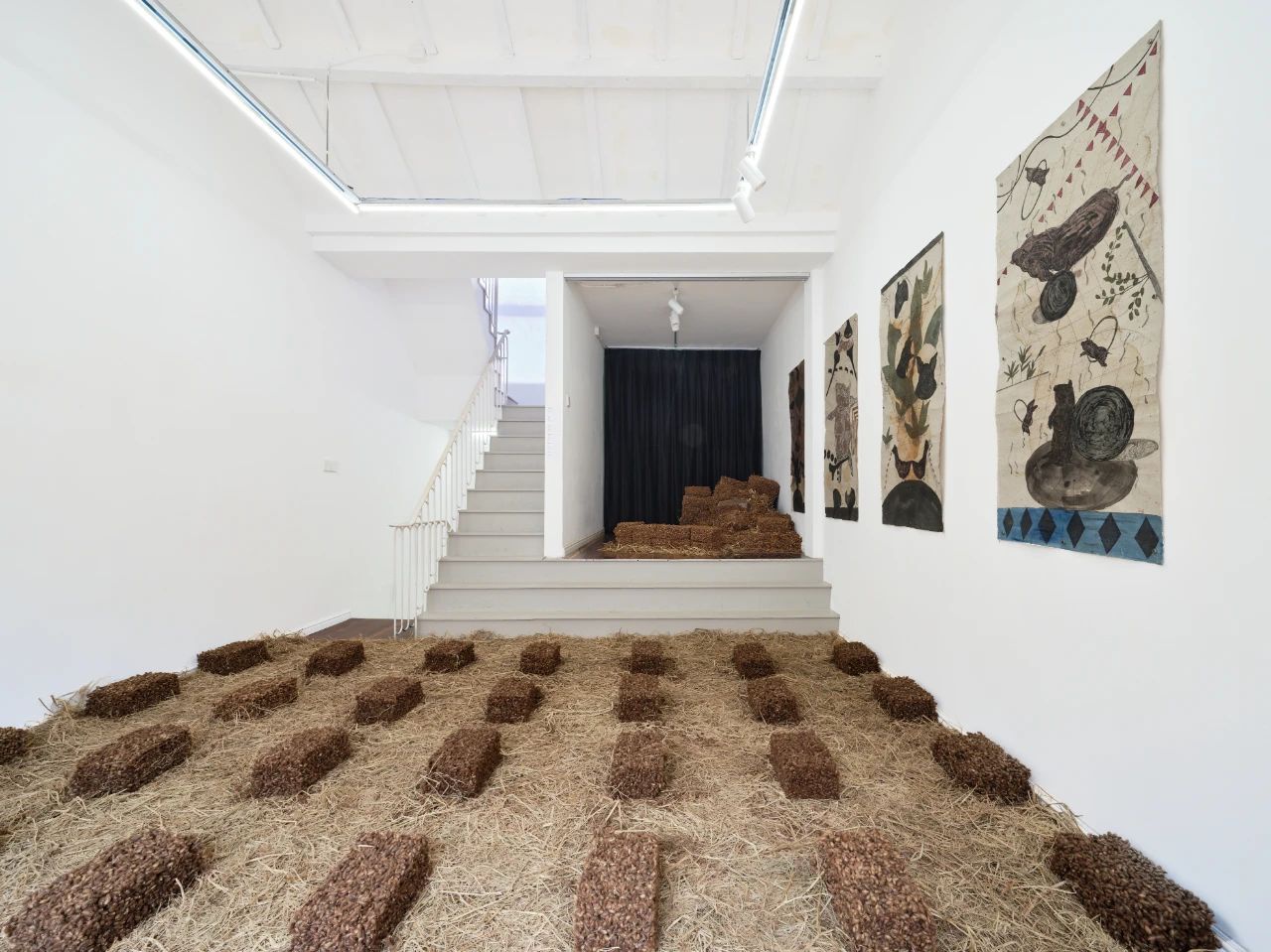
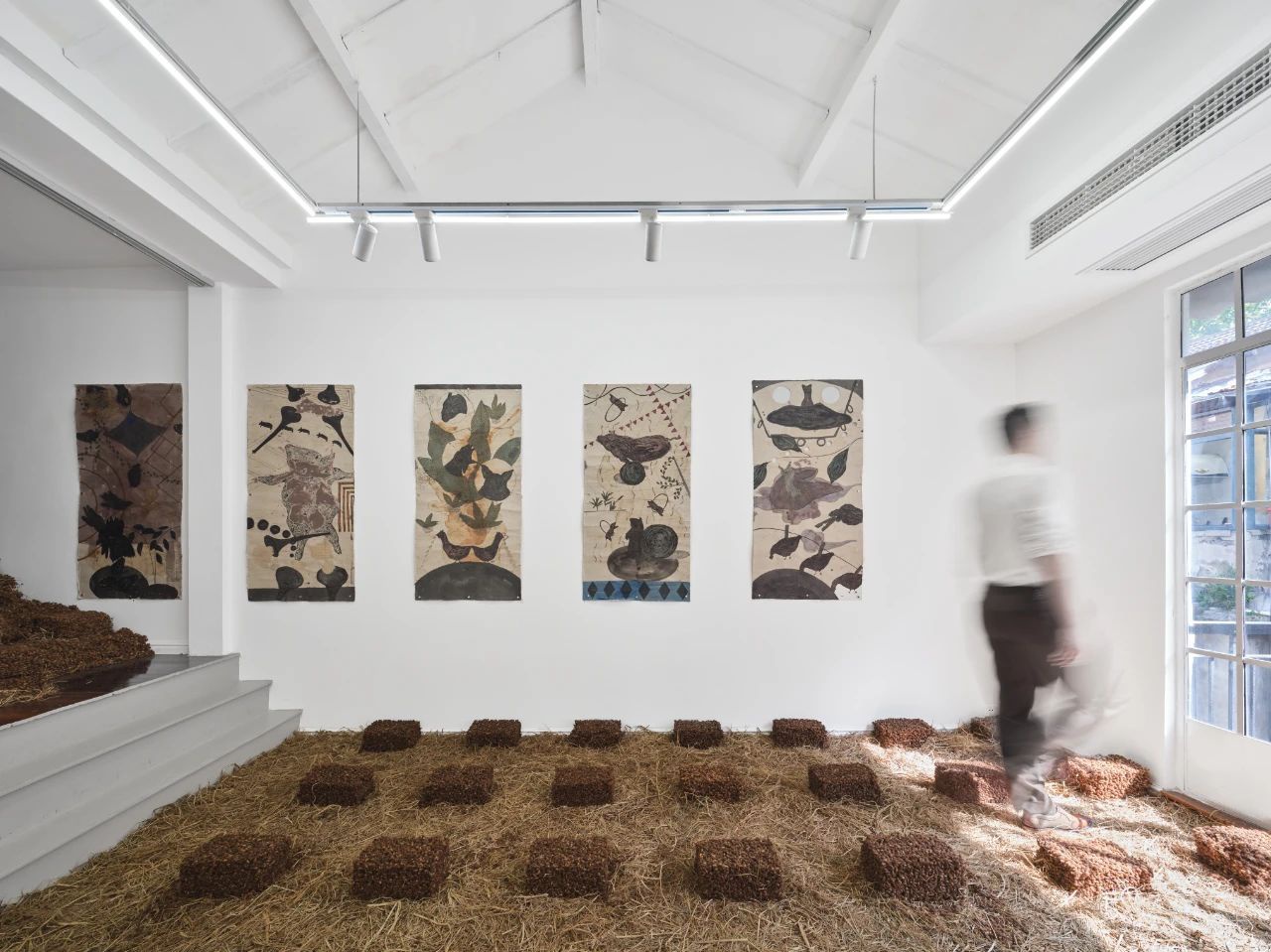
Installation view of Nostalgia, September 29, 2024 - November 10, 2024, Nan Ke Gallery, Shanghai © Courtesy Nan Ke Gallery Photo by Runxin
/"Countryside,on paper"
Extending his reverie for the idyllic life, the wall on one side displays a series of paper-based paintings. His memories and ties to the idyllic life that break the shackles of time and space, collaged and reorganized in these paintings, turning into a paradise for preserving his thoughts. In the process of reorganization, the element of paper-cutting is incorporated into his works as a tribute to this common art form in the countryside. “Paper-cutting is an expression with decorative and storytelling qualities, through which I hope to convey a sense of longing for life in the past.” In rural Jiangxi, paper cutting is often used to tell stories about life. In the process of cutting, expectations and blessings for the future are thus inscribed and remembered.
Most of the colors and materials Peng Zhang uses are simple and rustic, a choice that stems from his memories of life as a child. “I like to use simple materials such as charcoal. When I was a child, I used to paint with briquettes and charcoal from home, which made me develop a preference for rustic colors.” Rather than pursuing complex expressions, he prefers to use the simplest materials to stay close to the aesthetics of life in the countryside, where “making the best use of what you have” is the key to finding a connection to the past in the ancient fabrication.
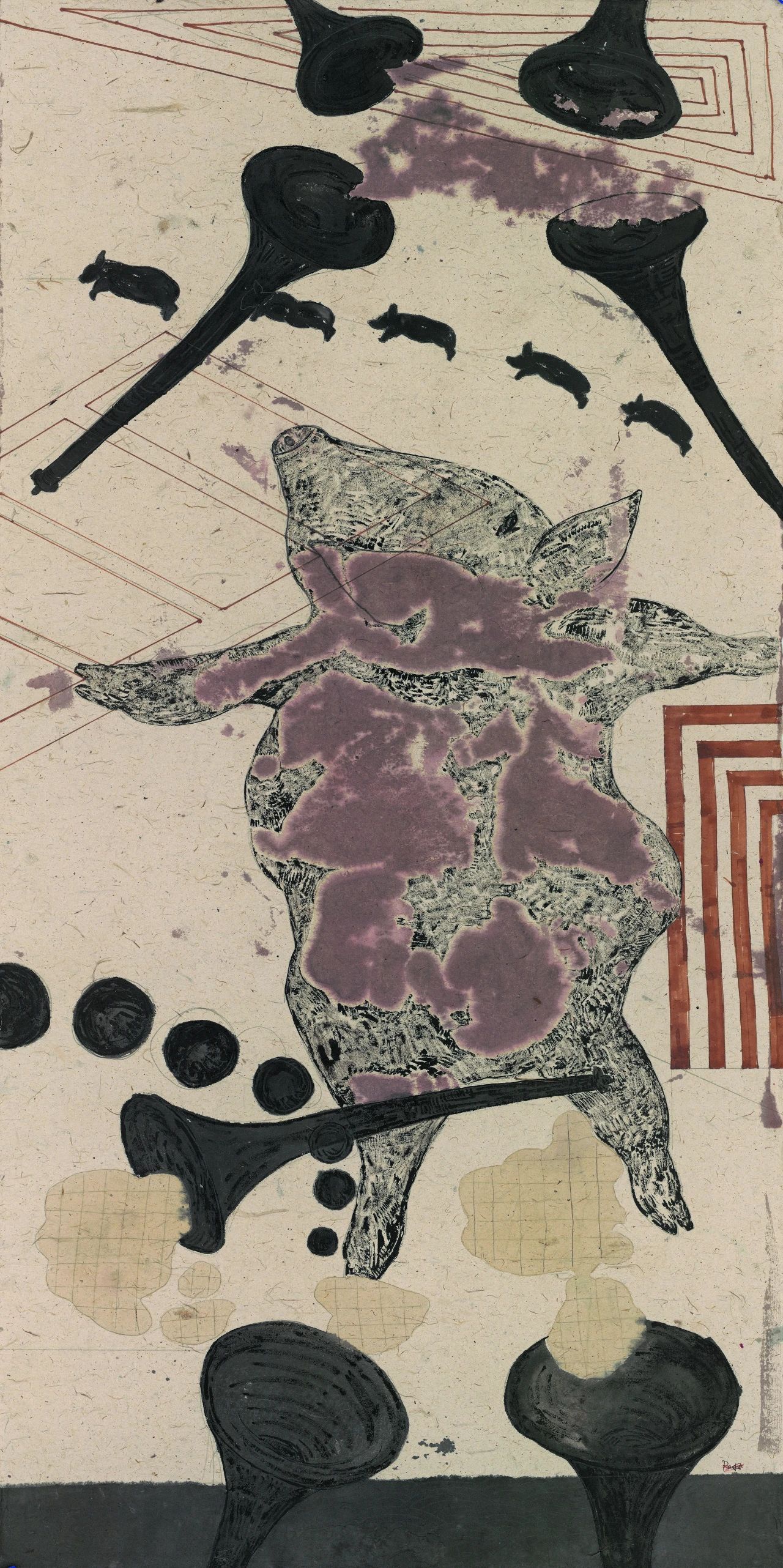
Peng Zhang
Solo Dance, 2022
Watercolor, ink, pencil on rice paper
140h x 70w cm
© Courtesy of the artist
/"When the Past Fade"
Exploring the lower level of the exhibition, “Weaving Memories” is a joint work with his neighbors, villagers with whom he actually grew up. They recreated scenes of rural labor by rolling grass ropes: “This creative process is not only a means of artistic expression, but also a way to revisit the past.” The rope symbolizes the close relationship between the villagers and recalls the rural life that may have faded away.
For Peng Zhang, “cooperation” is the core of this work. "Many of my large-scale installations utilize craftsmanship inherited from the countryside. During the weaving process, I work together with the villagers, which is not only the birth of a work of art, but also our shared memories of the close-knit neighborly relationship in the past." And when these heavy fabrics are dispersed in the space, they seem to constitute a Spring Festival-like counterpoint to the tightly packed rows of the upper space, suggesting everything about rural relationships - united, collocated, uniform and natural.
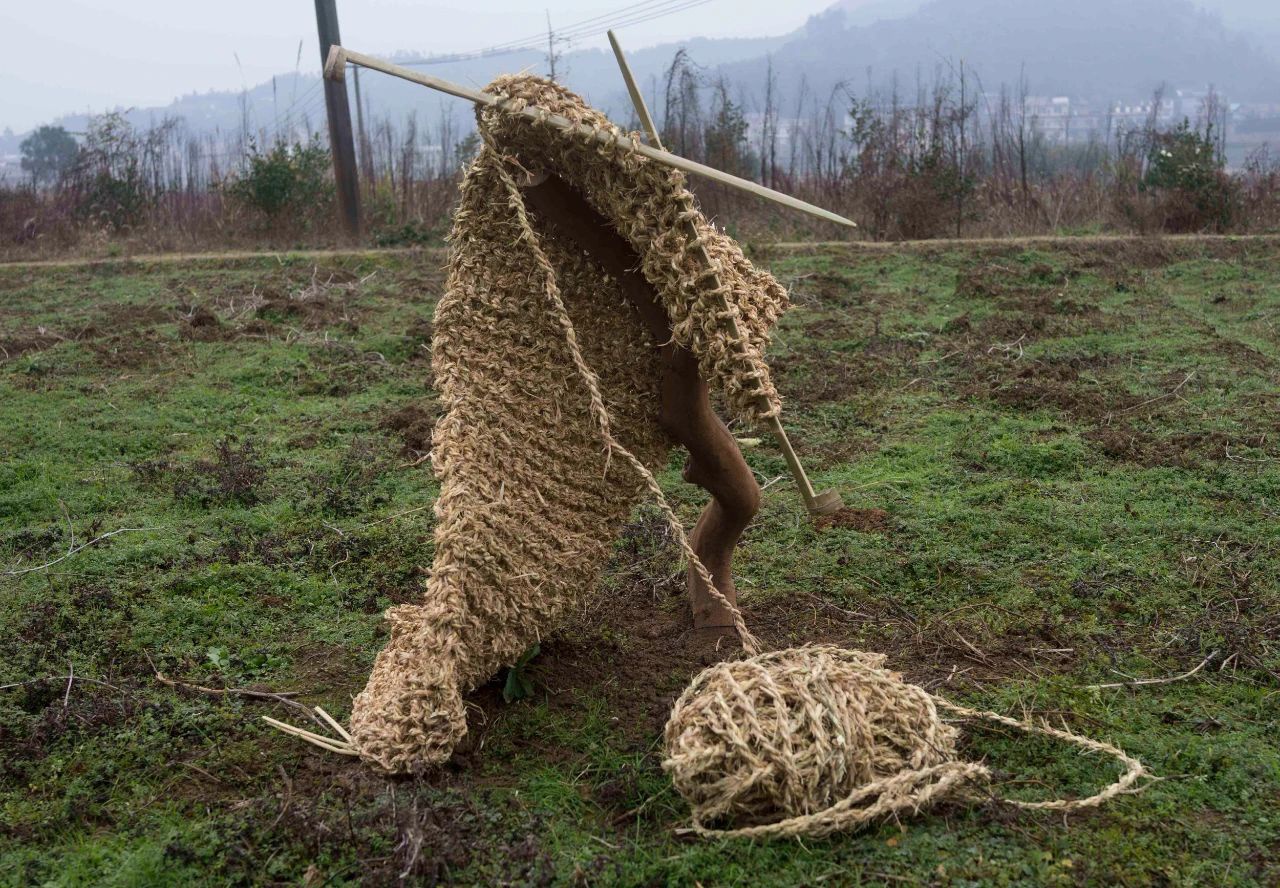
Peng Zhang
Weaving Memories, 2021
Rice straws, bamboo sticks
Dimensions variable
© Courtesy of the artist
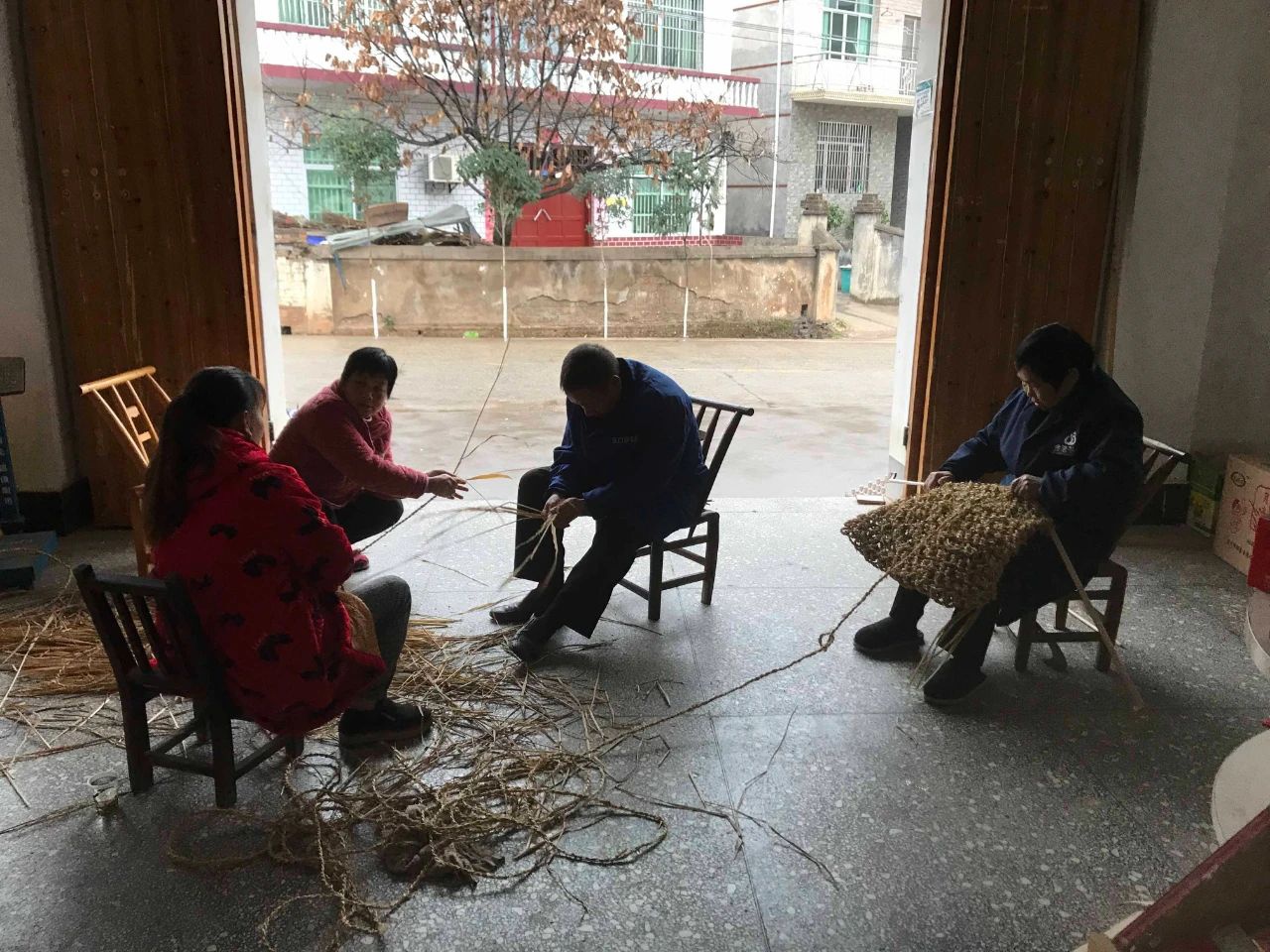
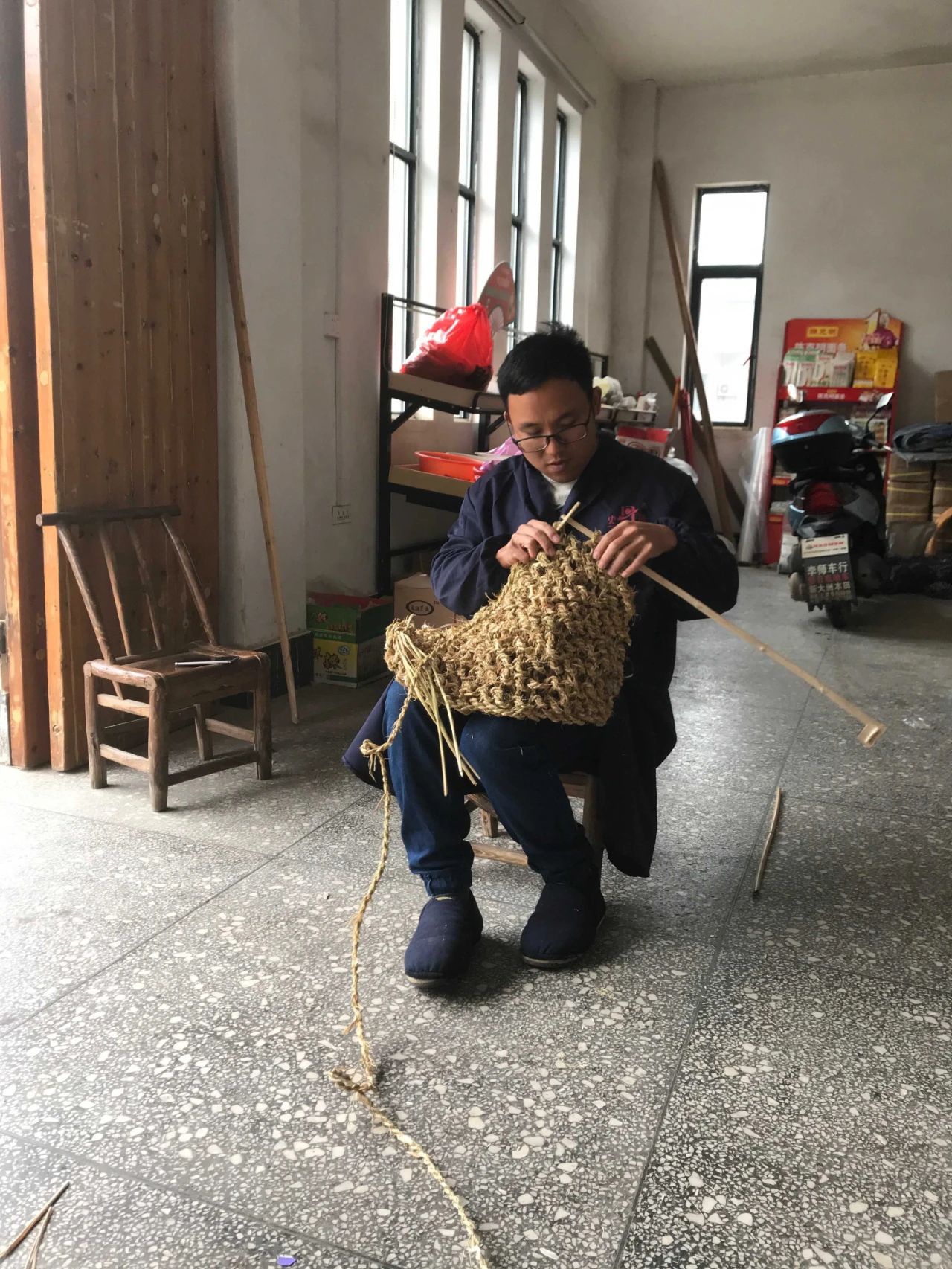
Production process of Weaving Memories © Courtesy to the artist
/"Rooted Dirt"
When the footsteps are close to the earth and come to the bottom of the exhibition, the actual soil hints at the roots and answers of all creations. Land is the foundation for all of Peng Zhang's artistic creations, and it is also the place where he places his emotional trust. "Land is not only the foundation for my growth, but also the source of my creation. I hope people can see it as soon as they enter the door, and as they continue upward, they will understand how I grow and expand, just like a plant that opens its branches and spreads its leaves." The work “Paradise” replicates his childhood memories of playing and learning in the fields through authentic planting. "The land taught me how to grow and interact with nature and others. I learned how to farm in its midst, communicate and connect with people, and ultimately arrived at painting and creating."
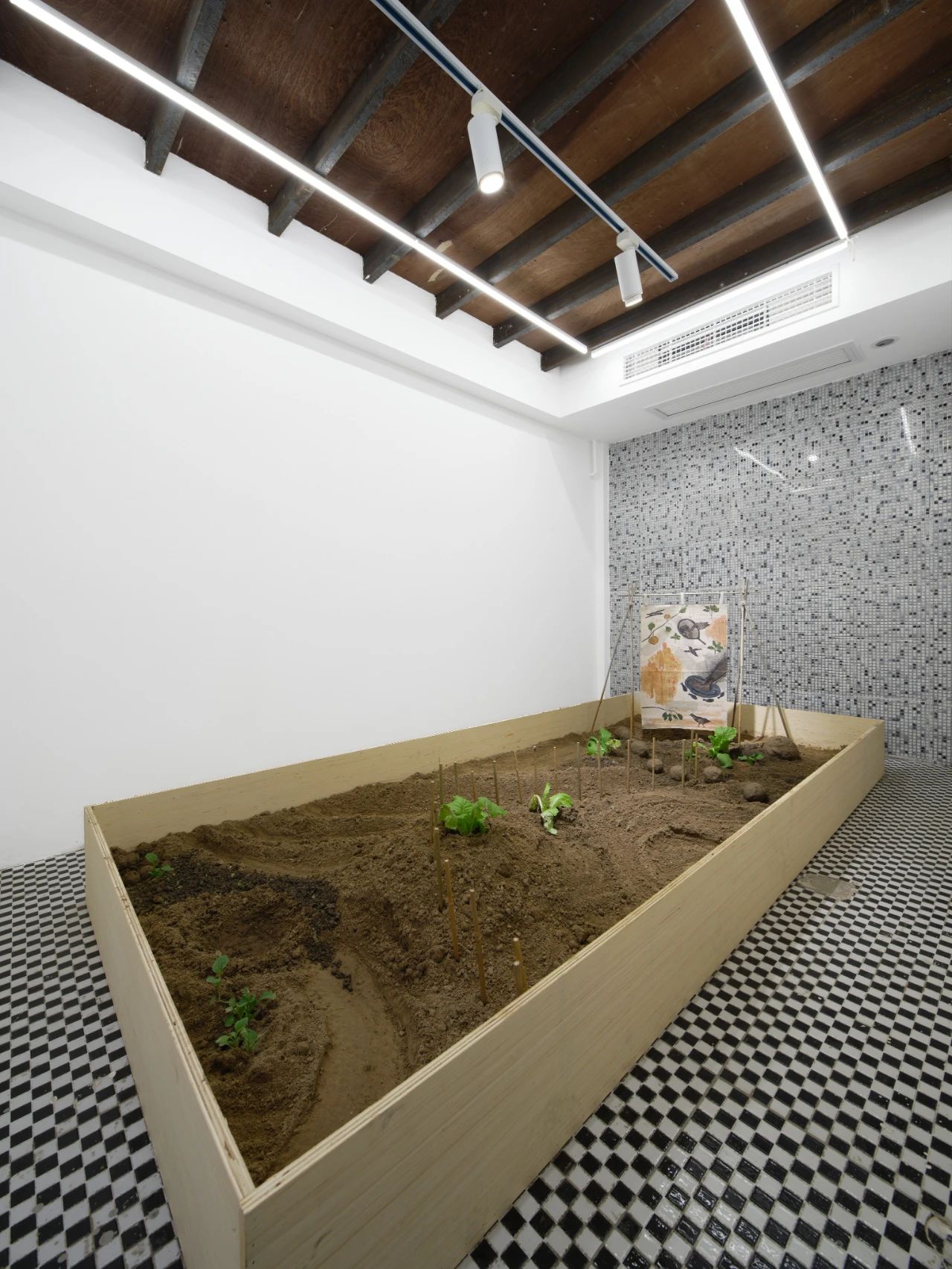
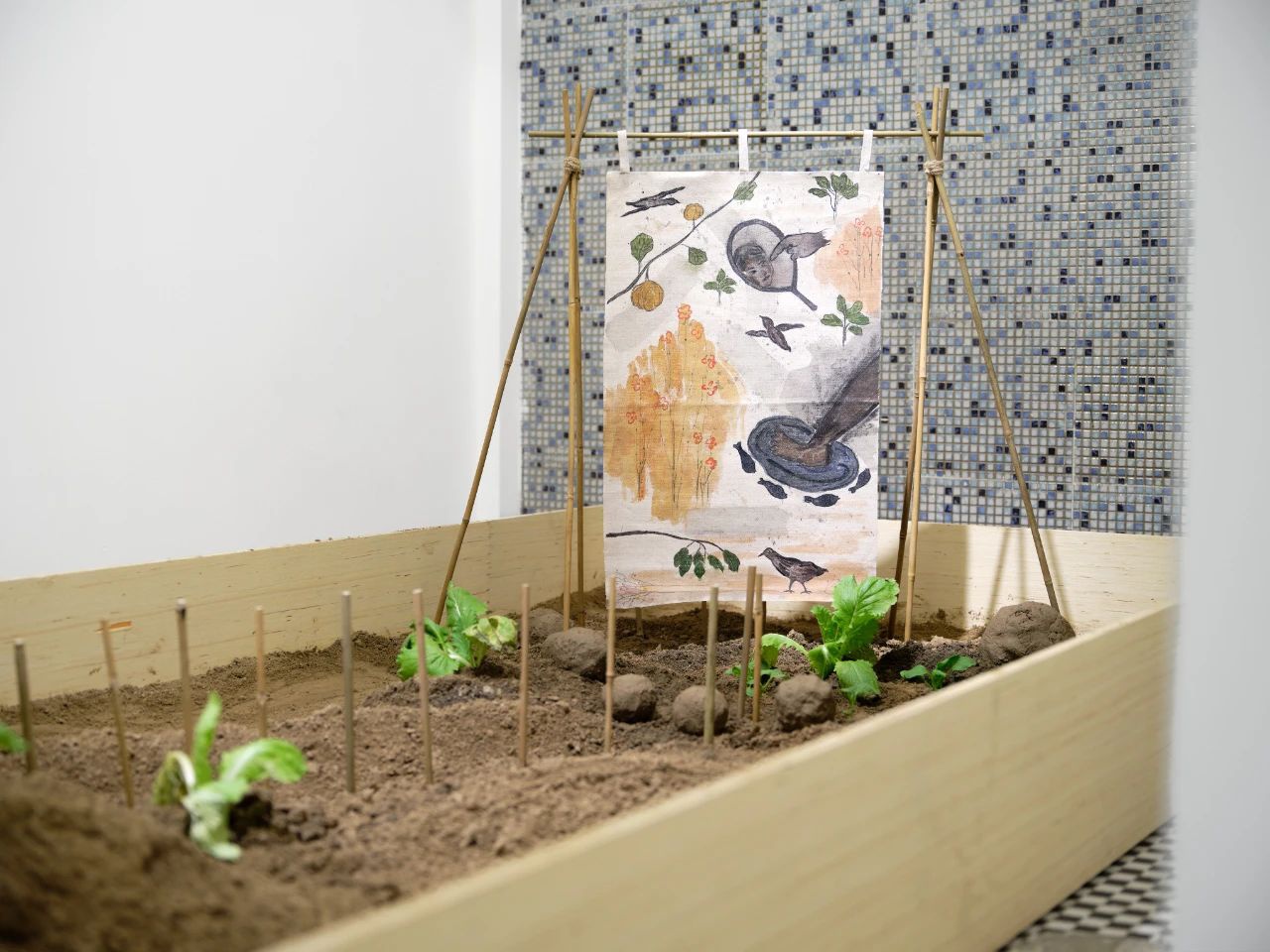
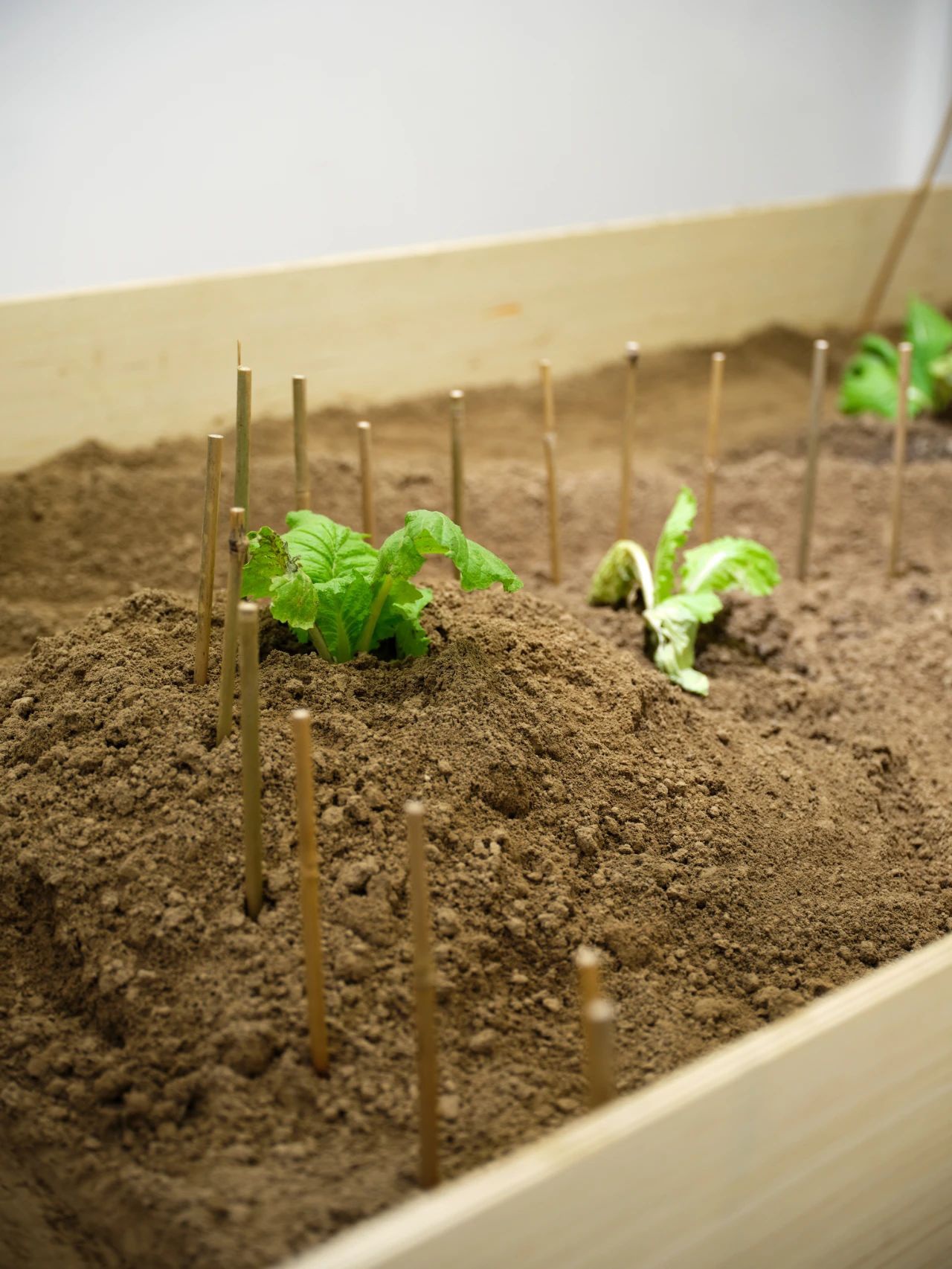
Peng Zhang
Paradise Garden, 2024
Dirt, planting, painting
Dimensions variable
© Courtesy of the artist
Rooted in the era of rapid urbanization, “Nostalgia” prompts the viewer to review the rural life yet to reconsider its presence and absence in the city. As one passes from floor to floor of the exhibition, a “fabric” of rural memories, woven with xanthiums, earth bricks and paper cuttings, softly unfolds, exploring and confronting the depths of attachment with all the tenderness that has not yet been spoken of, or has only been gazed at.
Text by Roxane Fu
October 26, 2024



